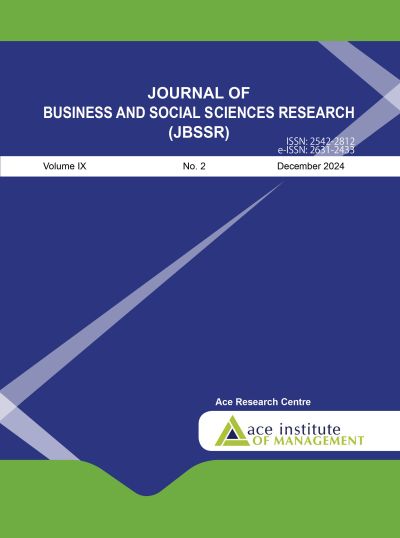The Influence of Corporate Social Responsibility on Brand Loyalty Among FMCG Consumers in the Kathmandu Valley
DOI:
https://doi.org/10.3126/jbssr.v9i2.72407Keywords:
Brand loyalty, brand trust, corporate social responsibility, fast-moving consumer goods, perceived qualityAbstract
This study investigates the influence of Corporate Social Responsibility (CSR) on brand loyalty among FMCG consumers within Kathmandu Valley, addressing a significant gap in the existing literature. It explores how CSR functions as a differentiator in fostering brand loyalty within a competitive market. Employing a cross-sectional survey design, data were collected using structured questionnaires from FMCG consumers. The analysis, based on Carroll’s CSR Pyramid and the Triple Bottom Line Theory, applies mediation techniques to evaluate the role of brand trust and perceived quality in the CSR-brand loyalty relationship. The findings demonstrate a positive correlation between CSR activities and brand loyalty, with brand trust acting as a significant mediator. However, perceived quality does not have any direct or indirect effect on brand loyalty. These results emphasise CSR’s crucial role in building loyalty within Nepal’s FMCG sector. The study offers practical insights for companies to align CSR with customer values to strengthen brand relationship and loyalty.
Downloads
Downloads
Published
How to Cite
Issue
Section
License
© JBSSR/AIM
Authors are required to transfer their Copyright to the Journal of Business and Social Sciences Research.




